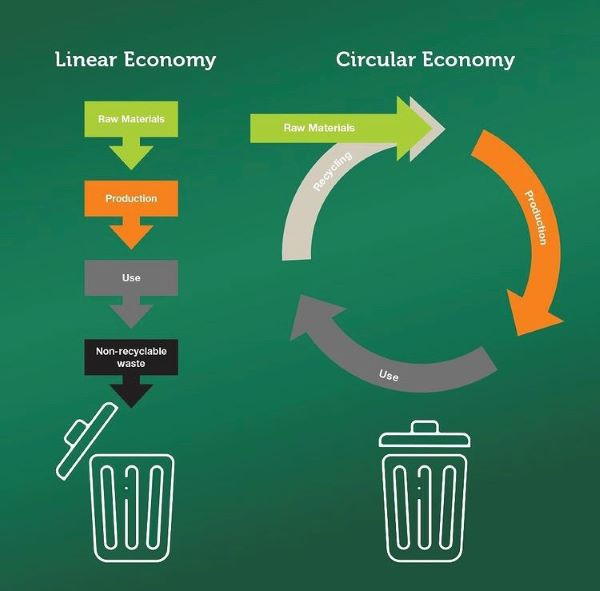
About the Circular Economy: A Refresher
25th May 2020
We use the term 'circular economy' a lot – but what does it mean? Well, a circular economy is one in which no material is wasted. At the end of an object's life, it is given back into the production system to create something new. This is commonly through composting or recycling. This means that no net waste is produced.

Why a Circular Economy?
In a circular economy, we can take better care of our resources and produce less waste. Australians produce 67 million tonnes of waste each year, according to the most up-to-date statistics. And not enough of it is being recycled, often due to complex packaging and 'wish-cycling' – putting something in the recycling bin in the hope it will get recycled, but usually dooming the rest of the bin to landfill instead. In addition, something that people often don't realise is that they're not recycling unless they're buying recycled. This includes businesses and governments as well as individuals. A circular economy creates less demand for new (virgin) materials and more demand for reclaimed materials, keeping them out of landfill and the oceans. See here for the difference between recycling and composting.
Australia's Circular Economy
Australia Governments have created a plan to phase out offshore export of recyclables and improve onshore recycling facilities. Well, we don't have one. Not yet. But in late 2019, the Council of Australian Governments (COAG) agreed on a near-total ban on exporting recyclables overseas, beginning in the second half of 2020. Their plan is to achieve an 80% onshore recycling rate for recyclables – meaning that Australia will deal with its own waste, with only 20% of recyclables not recovered.
BioPak's Circular Economy
All BioPak's products can be composted and recycled. BioPak's compostable products are designed with a circular economy in mind. By composting, we put resources back into the ground to contribute to new life and resources. But, at the end of the day, it's down to you. Make the decision to purchase and use compostable or recyclable products – and then make sure they are disposed of correctly.
Information taken from ABC News. Read about our FSC-certified birchwood and how to market your restaurant in times of COVID-19, on our blog.
Planet Friendly Packaging acknowledges the traditional custodians of the land on which we work. Our thoughts go out to everyone affected by COVID-19. Stay safe.

